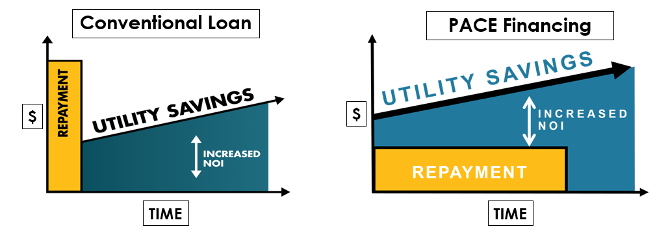Jul 19, 2022 | News
TXSES Op-Ed – printed in Dallas Morning News & Corpus Christi Caller Times – Sunday, July 17, 2022
By Patrice ‘Pete’ Parsons
In the middle of a heat wave, this renewable source is helping to offset the increased need for energy with help from the sun
As Texans hunkered down again from a “reserve capacity energy shortage” this week, one thing was clear: Texans who have invested in solar helped the electric grid. Read the full article in the Dallas Morning News (subscription only).
Jul 11, 2022 | News
 Been thinking about going solar? With solar panels at attractive prices, the time to invest in clean energy solutions has never been better!
Been thinking about going solar? With solar panels at attractive prices, the time to invest in clean energy solutions has never been better!
Join TXSES and become a member of Clean Energy Credit Union!
Clean Energy Credit Union (CECU) is a unique federally chartered credit union. A not-for-profit, financial services cooperative, CECU focuses solely on providing loans that help people afford clean energy products and services like solar electric systems, electric vehicles, green home improvements, and electric-assist bicycles. CECU operates solely online and via mobile devices while offering phone and online support to assist members in all transactions.
Colorado-based, CECU serves members throughout the US, with 7,000+ ATMs and 5,000 shared branch credit unions nationwide, including a large number in Texas which they can access their account from. Since TXSES is partnered with CECU, our members are eligible to take advantage of the lowest loan rates anywhere in the country for solar panel loans through CECU. To learn more about CECU, click here.
To re-up your current membership with Texas Solar Energy Society, click here.
Nov 10, 2021 | News
Source: Environment Texas
November 6, 2021
The U.S. House of Representatives voted 228-206 last night to build a bridge to a brighter future by passing the Infrastructure Investment and Jobs Act on Friday. This major bipartisan package will improve Texas’ transportation and power infrastructure and ensure clean water over the coming decades.
Up next: a budget reconciliation bill that would help the U.S. stall climate change and clean up our environment. The Build Back Better Act includes clean energy tax incentives and other investments to tackle pollution.
Key environmental provisions with funding include: removing lead pipes; building EV charging stations; upgrading Texas’s ailing electric grid and power infrastructure; and upgrades to public transportation systems.
Read the press release in its entirety.
Jun 23, 2021 | News

By Dub Taylor, Chief Operating Officer Texas PACE Authority
The demand for solar in Texas is exploding as costs continue to decline and property owners are increasingly aware of solar options that reduce power consumption, demand and enhance resiliency. While solar has both immediate and long-term benefits, the initial capital costs can be a barrier for greater adoption. That is where PACE financing can help!
What is PACE
PACE, or Property Assessed Clean Energy financing, is a proven tool that allows Texans to upgrade facility infrastructure with little or no capital outlay. Approved by state legislation and established by local governments, PACE enables commercial, non-profit, multifamily and industrial property owners realize immediate energy and water efficiency benefits. PACE finances improvements that lower operating costs and use the savings to pay for water conservation, energy efficiency, resiliency and distributed generation projects. Owners gain access to private, affordable, long-term (typically 10-20 years) financing that is not available through traditional funding avenues. PACE will finance the entire costs of eligible improvements eliminating nearly any impact to budgets.
How PACE Works
PACE financing may be used to pay for permanent improvements to the property that are intended to decrease water or energy consumption or demand, including solar. Local governments across the State are taking advantage of the Texas PACE statute and establishing programs to further provide quality and valuable services to their constituencies, stakeholders and taxpayers.
Benefits for Solar Installers
Solar installers will benefit from providing a new option for their customers, increasing job creation and retention, and providing an answer to the age-old question: “How are we going to pay for it?” PACE is transforming how contractors look at projects, proving that there is a clear path forward for upgrading infrastructures, implementing energy efficiency, distributed generation and water-use reduction measures.
This Bastrop County project highlighted below was facilitated by a solar installer, who helped their customer with all aspects of design, installation and financing – including securing rebates and grants in addition to PACE financing.

Benefits for Property Owners
This unique program enables property owners to overcome traditional market barriers, such as extended payback periods and lack of capital, that frequently discourage investment in energy efficiency and water conservation improvements.
PACE provides a new source of property-secured financing for solar, energy efficiency and water conservation retrofits which preserves an owner’s internal capital for other investment opportunities.

Benefits for Lenders
PACE is not a personal or business loan. It is a voluntary land-secured assessment that is paid off over time. The improvements generate energy and water savings that exceed the cost of the assessment, resulting in projects that are cash flow positive. Unlike traditional mortgages, the assessment is tied to the property, and the repayment obligation transfers to the next owner if the property is sold. Property owners choose a private sector lender and voluntarily request that the local government place a senior lien on the property for the total cost of the project. The property owner commits to the local government that it will pay the PACE assessment installments.
Want to learn more?
The Texas PACE Authority (TPA) administers PACE programs for 58 cities and counties across Texas. On the TPA website, you will find a host of resources, including program documents, a financing scenario comparison calculator, a service provider directory, educational materials, case studies, and video recordings including a March 2021 PACE for Commercial Solar webinar featuring TXSES!
Dub Taylor is Chief Operating Officer of Texas PACE. For more than 25 years, Dub has helped advance cost-effective, clean energy technology and policy through his work in the public sector. He also sits on the TXSES board of directors.
Jun 21, 2021 | News
With permission, by Suzanne Bertin and Erica Glenn for Advanced Energy Economy, June 3, 2021
It was a dark and stormy session for the Texas legislature, dominated by electric power issues surfaced by Winter Storm Uri. With the Texas electricity system under more scrutiny – and more up for grabs – than at any time since restructuring in 1999, we at the Texas Advanced Energy Business Alliance (TAEBA) had our hands full. But when the dust settled and the legislature gaveled out on Memorial Day, the outcome for advanced energy was net positive – even though the legislature missed a golden opportunity to enhance grid resilience with distributed energy resources.
No One Expected a Legislative Session Like This One
Starting on the second Tuesday in January, in the midst of a global pandemic, the Texas Legislature was focused on COVID-19 and passing the state’s required two-year budget, while Texas Advanced Energy Business Alliance (TAEBA) was promoting advanced energy as an economic recovery tool. But, five weeks into session, a historic ice storm, Winter Storm Uri, swept across the State. This winter storm blanketed large swaths of Texas in snow and ice, and left millions without power or clean water for days in below-freezing temperatures, causing much suffering and loss of life. From then on, the energy sector was front and center for the Legislature, and TAEBA pivoted its policy priorities to focus more directly on advanced energy solutions for a reliable and resilient electricity system for Texans.
After the February winter storm blackouts, the Legislature held multiple days of hearings questioning leaders at the Electric Reliability Council of Texas (ERCOT), Public Utility Commission of Texas (PUCT), Railroad Commission of Texas (RRC), major utility companies, and industry experts to try to figure out what went wrong and how to prevent a future crisis. Then came an avalanche of bills hurriedly filed before the March 12 deadline touching topics such as PUCT and ERCOT reform, wholesale market design, resilience and weatherization, finance and securitization, and bills relating to transmission, interconnection, distributed energy resources (DERs), battery storage, energy efficiency, demand response, electric vehicles (EVs), wind, and solar. As a result, TAEBA found itself directly engaged with or closely watching well over 200 bills. Following are some highlights from a very intense legislative session, the busiest in decades.
Read the full article.

 Been thinking about going solar? With solar panels at attractive prices, the time to invest in clean energy solutions has never been better!
Been thinking about going solar? With solar panels at attractive prices, the time to invest in clean energy solutions has never been better!

